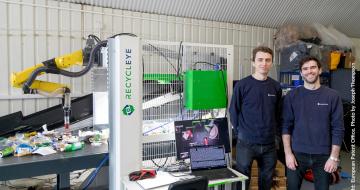Only the holder of Belgian plant breeders' rights has the right to perform a number of actions with regard to the material of a protected variety (see scope of protection).
However, there are exceptions that do not require the holder's authorisation.
Private use
You do not need authorisation to carry out acts done privately and for non-commercial purposes with regard to the material of a protected variety.
As an individual, you may therefore plant and propagate flowers in your garden without permission, whether or not they are protected by plant breeders' rights.
Acts performed for experimental purposes
You do not need authorisation if propagation or maintenance of the propagating material is carried out for experimental purposes only.
Development of new varieties: exemption of the breeder
You do not need permission for actions aimed at breeding or discovering and developing other varieties.
Also, the authorisation of the holder is not required for acts of exploitation normally reserved for the holder of the plant breeders' rights, in respect of these other varieties, unless:
- the variety produced is a variety essentially derived from the initial variety, as defined in the Code of Economic Law or
- the variety produced is not clearly distinguished from the initial variety, or
- the repeated use of the initial variety is required for the production of the variety.
Farmer's privilege
Of the following agricultural varieties:
- oats (Avena sativa),
- barley (Hordeum vulgare L.),
- spelt (Triticum spelta L.), and
- potatoes (Solanum tuberosum)
farmers are allowed to reuse part of their harvest (the so-called «farm-saved seeds») to work their fields the following season, subject to a fair payment to the holder of the plant breeders' rights.
Exhaustion of the right
A major limitation of any intellectual property right is exhaustion. The same applies to plant breeders' rights. As soon as the breeder has commercialised the material of the protected variety or derived material, or has allowed its commercialisation in the territory of the Union, he cannot oppose third parties to perform acts, which in principle require his consent (see scope of protection).
However, there are two exceptions to the exhaustion principle. Plant breeders' rights are not exhausted when:
- the material of the protected variety is propagated;
- when material of the variety that allows propagation of the variety, is exported to a country where the breeder cannot obtain protection for his variety because the country concerned does not have any relevant legislation.
Compulsory Licenses
The holder of plant breeders' rights is not always free to refuse a license. In certain cases, the Minister can grant compulsory licenses:
- for reasons of public interest for example, or
- in case of a biotechnological invention that involves major technical progress of considerable economic importance.


